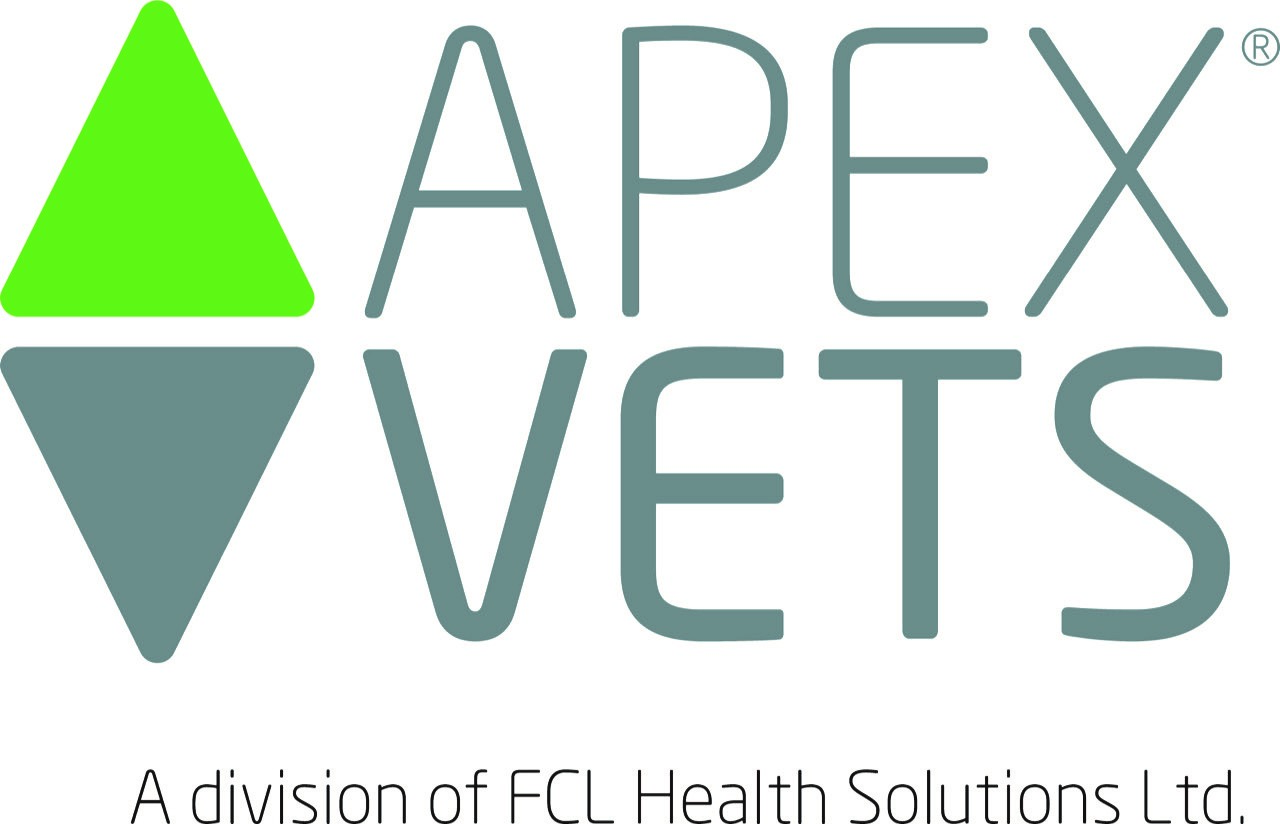Apex Vets Surgical Instruments brings the latest technology from the single-use market to the veterinary world. Learn more about this development in a Q&A with Apex Vets’ business development manager Kevin Welch.
Can you tell us a little about yourself and your company?
I spent nearly 30 years in the human surgery operating theatre. My career has been focused on patients always being number one and best practice has always been an ongoing process within the NHS and private sector. At Apex Vets, we have the same philosophy – that our animals deserve the best care possible. We believe that the quality of care you give as veterinarians depends upon the quality of the products you use. Apex Vets Surgical Instruments is a respected UK company with years of experience in our field. We treat our customers as partners, providing you with the service and products you expect in your quest to provide the very best for your patients – our animals. Above all, we are also animal lovers!
Your products are single-use surgical instruments – why should we be focusing on these rather than reusable ones?
Despite our evolutionary progress, we as humans still find the concept of change difficult. Many years ago, the human surgical field, led by the NHS, faced the same dilemma – single-use or reusable? Now, there are numerous policies in place in human surgery requiring single-use instruments as best practice. In 2010, the Scottish NHS conducted their Decontamination of Surgical Instruments and other Medical Devices assessment and promoted “wherever possible, employing single-use instruments for a range of procedures”.
This premise is brought under National Institute for Health and Care Excellence (NICE) guidelines, so that today, single-use instruments are the preferred choice.
These developments are based not just on the idea of risk reduction and prevention in surgery, but in the prime driver that single-use instruments are of the same quality as reusables, if not mostly higher. With single-use, you have a fresh, sterile and sharp pair of scissors every time. It is important to remember that single-use instruments have the same rigorous standards applied as reusable. The technical files and production procedures are heavily scrutinised, and our ISO regulation is controlled in the same way. So many customers compliment the quality of our instruments, claiming them to be superior to recycled instruments.
Although there are no empirical studies directly com-paring infection rates between surgeries using single-use instruments and surgeries using reusable instruments, overcoming infections caused by improperly maintained surgical instruments is a growing medical concern. Spoiled sterility of stainless steel or metal instruments because of poor post-surgery maintenance is an opportunity for cross-contamination from other patients or handlers.
Mishandling and poor cleaning (Figure 1) have a cumulative effect. Biofilm builds up on the instruments and scratched surfaces eventually leave the instruments un-sterilisable. Zoonoses are becoming an increasing concern to all and single-use can certainly contribute to a reduced risk of contamination.

Consider the life of the instrument. In the surgeon’s hands, no matter how skilled, needle stick injury can occur. In the post-surgery cleaning, disinfection and sterilising routine, needle stick injury occurs. In the case of human use, that is a huge risk. In the veterinary world the threat of zoonosis is a hidden, escalating danger. Remove the cleaning process by opting for single-use and you remove an important part of the risk.
Take our example of scissors: reusable, un-sharp scissors are not only frustrating to use but will tear a wound rather than create a clean surgical incision. The healing process is undoubtedly inhibited and infection risks can be expect-ed to increase as a result. Remember the intention of best practice is always to achieve best outcomes.
You claim that your products are more cost-effective than reusable instruments; how can that be?
The idea of reusable instruments was born out of a naive notion that the medical instruments, once purchased, would remain assets and avoid repeated costs. The truth is that there are hidden costs associated with the continued use of reusable surgical tools.
A pair of reusable scissors may cost up to £30. However, reprocessing for repeated use can cost the hospital, clinic or veterinary practice somewhere between £8 and £20 depending upon the complexity of sterilisation. Transportation to an autoclave facility has a cost and, even on-site, sterilising materials in the form of microbicides and disinfection chemicals need to be added, as well as costs associated with repackaging the instruments. There are also significant human resource costs for handling the process, legislation, procedures, servicing regime protocols and costs for all of the equipment. Then, after as little as six uses, the scissors should be resharpened – which adds further costs.
If you consider single-use disposable scissors can typically cost as little as £2.50, there are reduced direct cost implications, not to mention the costs of all of the above processing steps – in terms of both money and time. Single-use instruments are seen as higher quality as they are made to the same standards but are new every time. The function of reusable instruments is impaired with every use – breakages, misalignment, no longer sharp, etc.
Are single-use instruments as eco-friendly as their reusable counterparts?
Single-use instruments are readily recycled; in fact they are more “green” than reusables. We have already considered time, costs of detergents, etc, but there is an obligation for incineration companies to collect and recycle metals – so single use are in reality rapidly and inexpensively recycled. Reusable instruments contribute to the piles of bio-waste produced by hospitals and other medical facilities. In the United States’ healthcare system, a reported $4 billion of medical waste is created annually. Reusable instruments can be recycled but require thorough decontamination before reusing is safe. The preparation for recycling a reusable medical tool requires a quantity of electricity and large amounts of water, disinfectants, detergents, special brushes and steam, because of contamination from extended use. These often-hazardous chemicals usually find their way into the waste water supply – hardly a “green” practice.
Fans of Disney’s Toy Story will know the scene in the third film, where the toys, heading to the incineration plant, are quick to grab metal to escape on the magnetic conveyor belt. As ingenious as their plan was, incineration companies are obliged to recover metals from waste for total incineration and reuse. So even disposed-of single-use instruments are recycled: not as the same instrument but as a molten mass that may end up in the car you drive or even a space satellite project.
Are there clinical or surgical scenarios that you believe would particularly benefit from single-use instruments?
Oncology surgeons already have a “clean and dirty” principle when carrying out procedures. Single-use instruments take this principle to the next level, and using a new set at the clean table can only further reduce the possibility of transferring cells from the procedure.
In ophthalmology, instruments are so fine that cleaning them for reuse can only result in damage, implying the next use on the next patient will not achieve the same results.
Single-use instruments also have a huge advantage for mobile vets; transporting used instruments either from various sites, or indeed if you are in an ambulatory setting, poses its own risks of injury, time costs and even losses. Losing very expensive reusable instruments in an equine, or perhaps a farm, setting, is at the very least inconvenient, irrespective of the costs. We have encountered vets with multiple sites sending vans out to collect instruments for reprocessing and then delivering them back at a huge cost – fuel alone and unnecessary travel is greater than the cost of single-use instruments, so our question is: “Why?”
Do you think single-use instruments should be used throughout all areas of surgery?
At Apex Vets, we are sincere in our message and honest enough that in areas such as dental surgery, for example, the larger, robust instruments required are better suit-ed to be reusable for just very practical reasons. Certain orthopaedic procedures are likely to be the same; however, constantly expanding our range, we are looking to introduce instruments and procedure packs here also.
If our readers were to take away only three key messages about your products, what should they be?
- High quality, low cost, extensive range
- Significant reduction in time-management, monetary and environmental costs
- Best practice: reduce cross infection and zoonosis risk
To find out more visit fclveterinary.com or call +44 (0)133 232 1819








